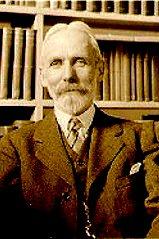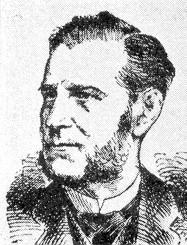Planning worship?
Check out our sister site, ZeteoSearch.org,
for 20+ additional resources related to your search.
- |
User Links
Person Results
George Frideric Handel

1685 - 1759 Person Name: George Frederick Handel (1685-1759) Composer of "HALIFAX" in Seventh-day Adventist Hymnal George Frideric Handel (b. Halle, Germany, 1685; d. London, England, 1759) became a musician and composer despite objections from his father, who wanted him to become a lawyer. Handel studied music with Zachau, organist at the Halle Cathedral, and became an accomplished violinist and keyboard performer. He traveled and studied in Italy for some time and then settled permanently in England in 1713. Although he wrote a large number of instrumental works, he is known mainly for his Italian operas, oratorios (including Messiah, 1741), various anthems for church and royal festivities, and organ concertos, which he interpolated into his oratorio performances. He composed only three hymn tunes, one of which (GOPSAL) still appears in some modern hymnals. A number of hymnal editors, including Lowell Mason, took themes from some of Handel's oratorios and turned them into hymn tunes; ANTIOCH is one example, long associated with “Joy to the World.”
Bert Polman
George Frideric Handel
Winfred Douglas
1867 - 1944 Person Name: Winfred Douglas (1867-1944) Arranger of "HALIFAX" in Seventh-day Adventist Hymnal Charles Winfred Douglas (b. Oswego, NY, 1867; d. Santa Rosa, CA, 1944), an influential leader in Episcopalian liturgical and musical life. Educated at Syracuse University and St. Andrews Divinity School, Syracuse, New York, he moved to Colorado for his health. There he studied at St. Matthew's Hall, Denver, and founded the Mission of the Transfiguration in Evergreen (1897). Ordained a priest in the Episcopal Church in 1899, he also studied in France, Germany and England, where he spent time with the Benedictines of Solesmes on the Island of Wight from 1903 to 1906. For much of his life, Douglas served as director of music at the Community of St. Mary in Peekskill, New York, and had associations with cathedrals in Denver, Colorado, and Fond du Lac, Wisconsin. He promoted chanting and plainsong in the Episcopal Church through workshops and publications such as The American Psalter (1929), the Plainsong Psalter (1932), and the Monastic Diurnal (1932). His writings include program notes for the Denver Symphony Orchestra, various hymn preludes; organ, as well as the book, Church Music in History and Practice (1937). He was editor of both the Hymnal 1916 and its significant successor, Hymnal 1940, of the Episcopal Church. Douglas's other achievements include a thorough knowledge of the life and culture of Hopi and Navajo natives, among whom he lived for a number of years.
Bert Polman
Winfred Douglas
Henry Hallam Tweedy

1868 - 1953 Author of "A Gracious Father of Mankind" in A Hymnal for Friends Born: August 5, 1868, Binghamton, New York.
Died: April 11, 1953, Brattleboro, Vermont.
Buried: Mountain View Cemetery, New Fairfield, Connecticut.
Tweedy attended Phillips Andover Academy, Yale University (BA & MA), Union Theological Seminary, and the University of Berlin. Ordained a Congregationalist minister in 1898, he pastored at Plymouth Church, Utica, New York (1892-1902), and South Church, Bridgeport, Connecticut (1902-09). He then became Professor of Homiletics at Yale Divinity School (1909-37). He taught liturgy, music, and the arts, and was interested in religious architecture. His works include:
The Minister and His Hymnal
Christian Worship and Praise, 1939
Lyrics:
"Eternal God, Whose Power Upholds"
"O Gracious Father of Mankind"
"O Spirit of the Living God"
--www.hymntime.com/tch
Henry Hallam Tweedy
Henry Hiles

1826 - 1904 Person Name: Henry Hiles, 1826-1904 Composer of "ST. LEONARD" in Hymnal and Liturgies of the Moravian Church Born: December 31, 1826, Shrewsbury, England.
Died: October 20, 1904, Worthing, England.
Hiles was educated at Oxford (BMus 1862, DMus 1867). He played the organ at Shrewsbury, as his brother’s deputy (1846); Bishopwearmouth (1847); St. Michael’s, Wood Street (1859); the Blind Asylum, Manchester (1859); Bowden (1861); and St. Paul’s, Manchester (1863-67). He lectured in harmony and composition at Owen’s College in Manchester (1867) and Victoria University (1879), and was Professor at the Manchester College of Music (1893). He also conducted musical societies in Lancashire and Yorkshire, and owned and edited the Quarterly Music Review (1885-88). He retired in 1904, moving to Pinner, near Harrow. His works include:
Twelve Tunes to Original or Favourite Hymns, 1867
Harmony of Sounds, three editions: 1871, 1872, 1879
Wesley Tune Book, 1872 (editor)
Grammar of Music, 1879
First Lessons in Singing (Manchester: Hime & Addison, 1881)
Part Writing or Modern Counterpoint (Novello: 1884)
Harmony or Counterpoint, 1889
Harmony, Choral or Counterpun
--www.hymntime.com/tch/
Henry Hiles
William Gawler
1750 - 1809 Composer of "GOSHEN" in The Cyber Hymnal Born: 1750, Lambeth, London, England.
Died: March 15, 1809, London, England.
Son of a schoolmaster, Gawler was an organist, teacher, and composer. His Op. 2, a collection of pieces for harpsichord or pianoforte, was published by Preston in the Strand in 1780. Harmonia Sacra, containing psalm tunes, anthems, hymns, and a voluntary, appeared in 1781. In 1784 Gawler was appointed organist (with a salary of £63l) to the Asylum for Female Orphans, Lambeth; he composed for their chapel music (Op. 16) to ‘Twelve Divine Songs’ by Isaac Watts, and collected the psalm tunes in use there in 1785; two sets of voluntaries for the organ (Grove); and some patriotic songs. He was parish clerk at Lambeth for many years, retiring in 1802. His works include:
Psalms and Hymns Used at the Asylum for Female Orphans, 1785
--www.hymntime.com/tch/
William Gawler


 My Starred Hymns
My Starred Hymns


